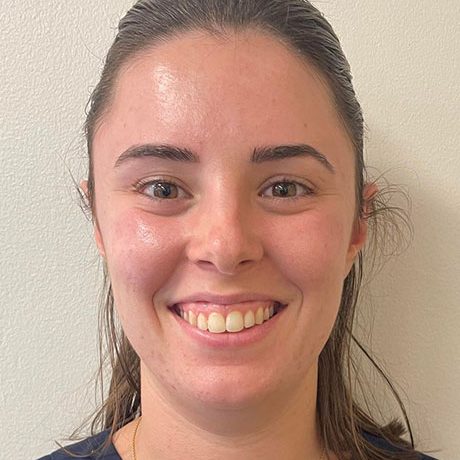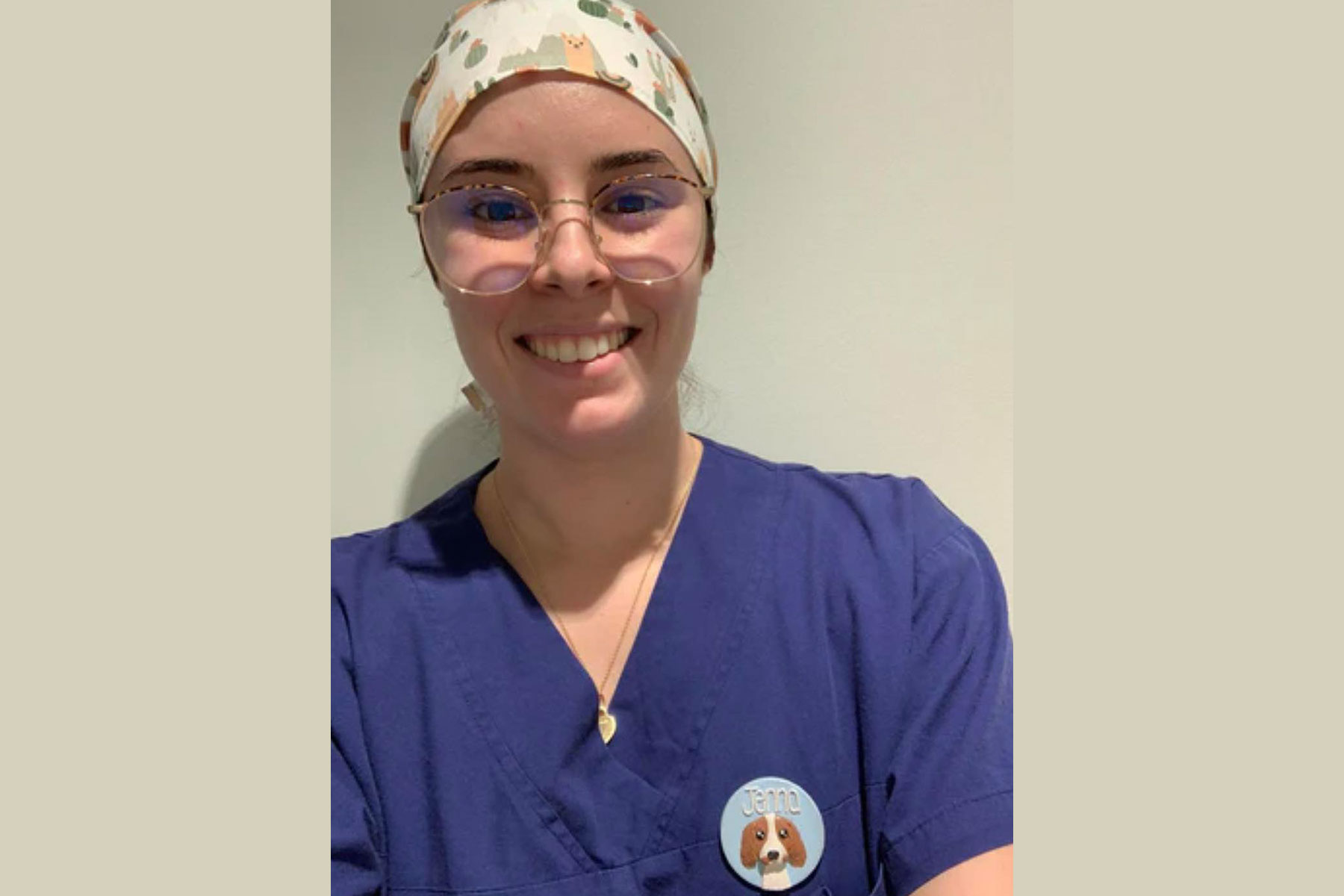I had a less-than common career path lead me to becoming an infection prevention and control nurse. After a difficult graduate program during the COVID-19 pandemic, I learned that ward-based nursing was not for me, and I moved into diagnostic nursing. I started a position as an endoscopy nurse, with no previous gastroenterology experience. An endoscopy nurse is a procedural nurse that assists in gastroenterology procedures, such as gastroscopy and colonoscopy. I did not know what to expect but was pleasantly surprised. Once an anxious and fearful nurse, I felt comfortable and confident in my new workplace.
I worked in endoscopy for 18 months and was competent in performing complex procedures and completed work after-hours in emergency on-call. I was also facilitating undergraduate nursing students during their placements.
I loved my job and was excited about the new leadership responsibilities I had gained. Unfortunately, during one busy shift when I was in a rush, I managed to fall over and break my foot. I ended up in a moon boot and required 12 weeks off work, away from the clinical area.
At the time, I was devastated. I loved work and was so disappointed that I was not able to continue facilitating the students I had at the time. After being at home for five weeks I was asked by my Occupational Safety and Health consultant if I would like to assist with COVID-19 contact tracing within the infection prevention and control (IPC) team at a large tertiary teaching hospital. I thought why not and decided to give it a go!
I spent the next five weeks working with the IPC team and loved my time with them so much that I decided to apply for a permanent Registered Nurse job. After successfully gaining the role in IPC I left my endoscopy nurse role and moved to IPC permanently.
Nearly a year later I am now a Clinical Nurse in IPC. I have had so many incredible opportunities whilst being here and know that I made the right decision. Looking back three years ago, I never would have guessed that this is the role I would be in.
What is infection prevention and control nursing
IPC nursing is a specialty aimed at preventing and controlling the spread of infectious diseases within the healthcare system using evidence-based practice. IPC nurses are not only responsible for the safety of patients, but also health professionals and visitors in the healthcare setting.
Within the tertiary hospital setting, the day-to-day functions of an IPC nurse include:
- Occupational exposure risk assessment, initial management and follow up
- Outbreak management
- COVID-19 contact tracing for staff and patients
- Pre-employment immunisation screening
- Staff vaccinations
- Influenza campaign
- Patient COVID-19 and influenza vaccination clinics
- Microbiology alerts and surveillance
- Health-associated infection investigations
- Environmental and hand hygiene audits
- Patient education
- Staff education – aseptic technique and PPE
- N95/P2 fit testing
- Policy review and development
- Building works
- Quality improvement and risk management initiatives.
The day-to-day function of an infection prevention and control nurse
The day-to-day functions of an infection prevention and control nurse can differ depending on what is going on at the current time. Although there are many functions of an IPC nurse, outbreak management and occupational exposure management are two of the most important roles that take precedence over all else.
Within my portfolio, the day commences with a daily microbiology result review for all current patients. Whilst reviewing these results, I am looking to identify abnormalities and potential infections or infectious disease. For example, patients that have a micro resistant organism, respiratory or gastro sample, urine screening, or wounds among others.
Once completing the daily checks, I perform ward rounds, which include visiting the wards to follow up on any abnormal results, identifying any potential infectious diseases and reviewing any wounds or invasive devices. Whilst we aim to continue to monitor flagged patients, we are largely responsible for advising the ward on how to manage these patients. This involves educating and informing the staff on appropriate infection control measures, whilst also promoting autonomy by informing staff where they may access the relevant policies and guidelines.
Infection surveillance is also another essential component and largely involves investigating potential hospital acquired infections. When an infection has been identified in the daily microbiology result review, an investigation into the root cause is paramount in establishing deficits within the healthcare system. From this data, the infection control team can develop the necessary quality improvement projects to address deficits in the future.
Within the hospital system, all healthcare professionals are at risk of occupational exposures. When commencing a new role, the IPC team complete pre-employment health assessments to ensure all staff are up to date with the necessary immunisations for vaccine preventable diseases that occur in the workplace. If an occupational exposure does occur, one of my obligations involves investigating the exposure, completing a risk assessment, and providing the necessary follow-up for both the source and recipient. This may include blood tests and referrals to an immunologist.
Outbreak management is a key component of infection control and often is a very difficult job. As we all know, COVID-19 has caused a huge impact on the healthcare system in the past three years and continues to cause outbreaks in both the community and hospital settings.
In the infection control setting, an outbreak is defined as two or more linked cases of the same illness. When a single case arises, it can often be challenging to contain the illness and prevent it from reaching the outbreak definition. This is often because it is quite difficult to implement isolation strategies and the necessary precautions due to the complex needs of the patients.
Each outbreak situation is unique and a risk assessment needs to be completed for management. For example, I have currently been involved in managing an outbreak in a ward with long-term patients. Initially, two patients that were sharing a room tested positive for COVID-19. As the patients on this ward are chronically unwell, it was not possible to isolate them in their rooms. In this situation, it required a more fluid and holistic approach where we needed to consider the needs of all the patients in the ward.
Therefore, we had to minimise patient movement outside of the ward, while allowing all patients to move around the ward as normal, to maintain their emotional wellbeing and minimise a decline in their mental health. Unfortunately, in this situation and many other outbreak situations in the inpatient hospital setting, infection generally spreads from patient to patient on wards that do not have single en suite rooms or that care for longer-term patients.
Why I love infection prevention and control
Infection prevention and control nursing is like no other facet of nursing that I have experienced. It is a unique environment which allows for the curation of strong multidisciplinary relationships whilst also maintaining patient contact, but from a different perspective. Every day is unique, and you never know what is ahead!
If you are feeling inspired to brush up on your infection prevention and control skills, the Australian College of Nursing (ACN) offers a variety of CPD courses tailored to your learning needs. You can choose the four-hour Infection Prevention and Control online module for a quick update or explore the Comprehensive Infection Series for an in-depth learning experience. The series covers key topics such as infection prevention and control, sepsis, antimicrobial stewardship in aged care, and wound management. Exclusive discounts are available for ACN members.
By Jenna Ricciardi MACN
Jenna Ricciardi MACN graduated with a Bachelor of Nursing from The University of Notre Dame Australia in 2019 and commenced a graduate program at a major tertiary teaching hospital in 2020. She gained experience working in different surgical specialties and procedural environments. She has almost completed her Graduate Certificate in Health Professional Education and has just commenced a Master of Nursing. She currently works full–time in the Infection Prevention and Control department, as a Clinical Nurse. Jenna is privileged and eager to take part in the ACN Emerging Nurse Leader (ENL) program.






